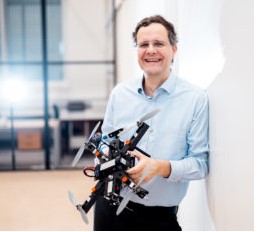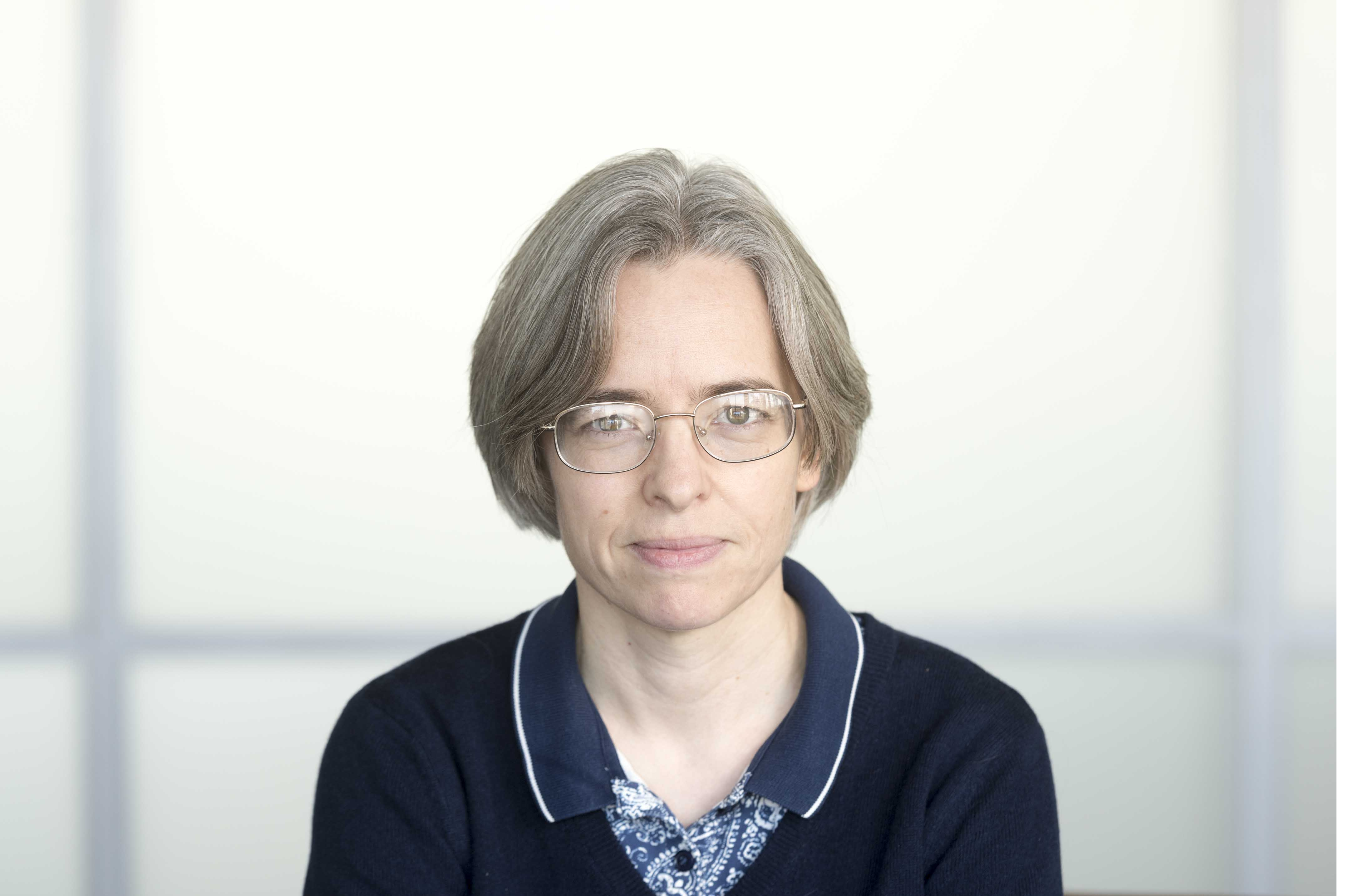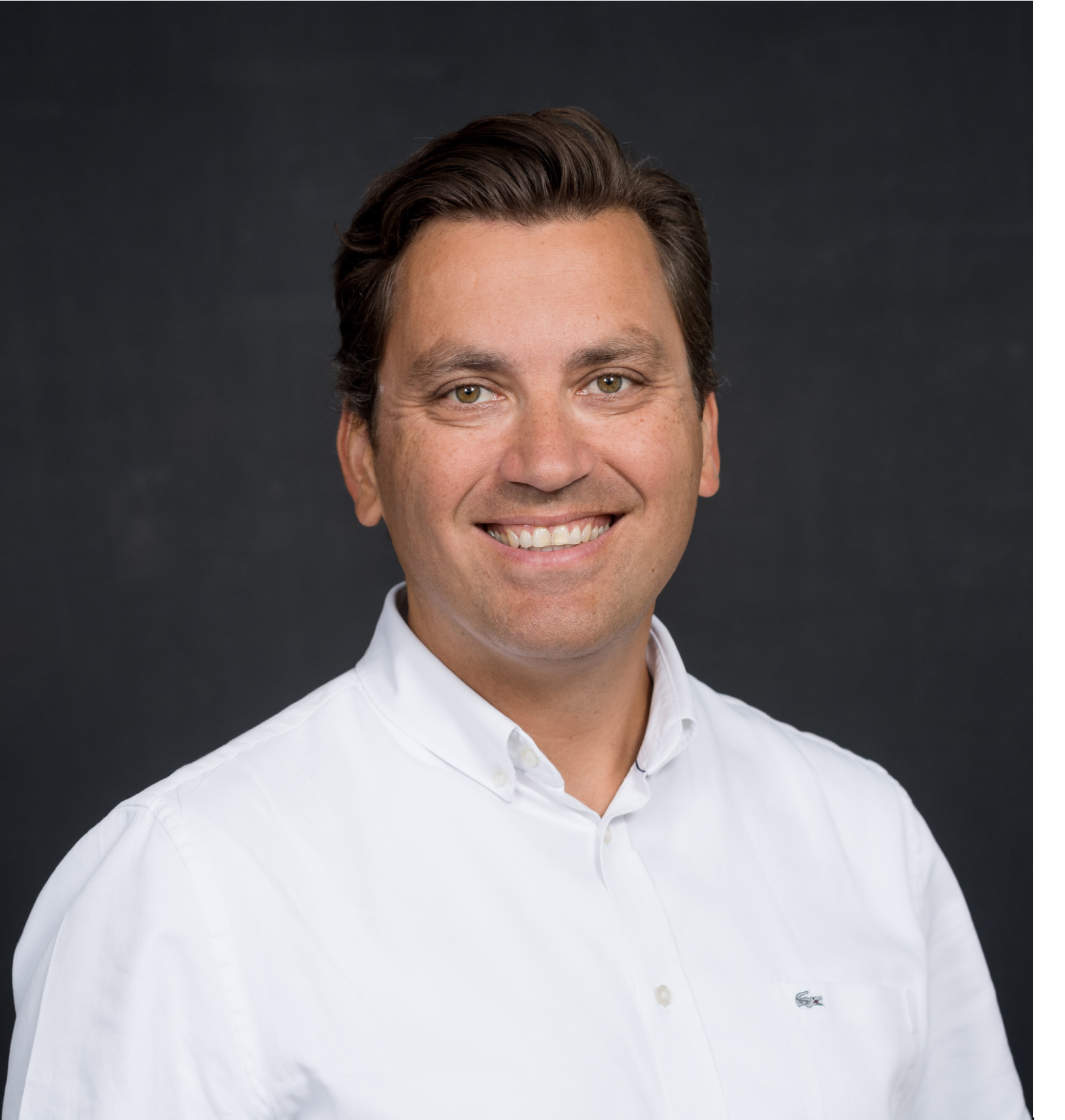Keynotes
We are proud to include three high-profile keynotes into our program:
-
Christian Bettstetter (University of Klagenfurt) — Sync and swarm: From metronomes to drones
-
Louise Dennis (University of Manchester) — Verifying Autonomous Systems
Christian Bettstetter (University of Klagenfurt) — Sync and swarm: From metronomes to drones
Abstract: Synchronization and swarming are two phenomena of self-organization in nature that are also relevant to engineering. In multi-robot systems, for example, temporal coordination is needed for tasks such as cooperative sensing and wireless communication; at the same time, mobile robots must be coordinated in the spatial domain to perform collaborative tasks. Recent research aims to develop a unified theory for synchronization and swarm behavior that accounts for their interplay. Entities that exhibit both phenomena are called “swarmalators.”
This keynote explores the use of swarmalators in robotics and related fields. The presentation first introduces the concept of self-organized synchronization, including its prevalence in natural systems, modeling with pulse-coupled oscillators, and its transfer to wireless systems. We then explain the coupling of synchronization with swarming and discuss the challenges of applying the swarmalator theory to technology. To demonstrate practical feasibility, we present prototypes of engineered swarmalator systems using mobile robots and drones. The talk concludes with emerging topics, providing insight into research directions in the field.

Biography: Christian Bettstetter is a professor of mobile systems and heads the Institute of Networked and Embedded Systems at the University of Klagenfurt, Austria. Additionally, he serves as the scientific director of Lakeside Labs, a research and innovation company. He earned his doctoral degree (summa cum laude) in electrical engineering and information technology from TU Munich, Germany. Bettstetter leads a team focusing on wireless communications and self-organization in networked systems. Their work has applications in telecommunications, IoT, and mobile robotics. He also coordinates an interdisciplinary research cluster on self-organizing systems and is a faculty member in the Karl Popper school on networked autonomous aerial vehicles. He has received several scientific awards, including the Best Paper Awards at SASO 2019 and ACSOS 2021. His commitment to teaching was recently recognized with the university’s Excellence in Teaching Award.
Louise Dennis (University of Manchester) — Verifying Autonomous Systems
Abstract: How can we provide guarantees of behaviour for autonomous systems? In this talk I will explain how autonomous systems can be programmed in ways that make them amenable to formal verification. I will discuss how cognitive agent programming can be used to provide a transparent and verifiable decision-making core and show how properties of the system can then be checked – including properties related to ethical behaviour.

Biography: Louise Dennis is a Reader in Computer Science at the University of Manchester. Her background is in artificial intelligence and more specifically in agent and autonomous systems and automated reasoning. She has worked on the development of several automated reasoning and theorem proving tools, most notably the Agent JPF Model-Checker for BDI agent languages. She is interested in the use of rational agent programming languages and architectures for autonomous systems, with a particular emphasis on verifiable systems and ethical reasoning.
.
Arne Hamann (Bosch) — Reliable Distributed Systems: Building future intelligent and autonomous systems
Abstract: Software is disrupting one industry after another. Currently, the automotive industry is under pressure to innovate in the area of software. New, innovative approaches to vehicles and their HW/SW architectures are required and are currently subsumed under the term “SW-defined vehicle”. However, this trend does not stop at the vehicle boundaries, but also includes communication with off-board edge and cloud services. Thinking it through further, this leads to a breakthrough technology we call “Reliable Distributed Systems”, which enables the operation of vehicles where time and safety-critical sensing and computing tasks are no longer tied to the vehicle, but can be shifted into an edge-cloud continuum.
RDS is the basis for a paradigm shift in the way intelligent and autonomous systems are built in future. Automated driving, for example, is currently mostly thought of from the ego perspective of each individual vehicle. RDS enables us to shift to a bird’s eye view - a collaborative perspective - as it allows information from individual systems to be reliably fused into a real-time distributed world model enabling better and more intelligent decisions.
Reliable distributed systems are not limited to automotive use-cases. The ubiquitous and reliable availability of distributed computing and sensing in real-time enable novel applications and system architectures in a variety of domains: from industrial automation over building automation to consumer robotics.
Insights in current activities of Bosch Research and its academic partners to move towards this vision will be provided.
 Biography: Dr. Arne Hamann obtained his PhD in Computer Science in 2008 from the Technical University of Braunschweig Germany. He is Chief Expert for “Distributed Intelligent Systems” at Bosch Research. Like the Bosch product portfolios his range of actives is very broad encompassing complex embedded systems where the interaction between physical processes hardware and software plays a major role through to distributed IoT systems with elements of (edge) cloud computing. In the academic contexts he is member of the editorial board of the ACM journal “Transactions on Cyber Physical Systems” and regularly serves as program committee member for international conferences such as ECRTS, RTSS, RTAS, DAC, WFCS, ETFA, and ICCPS.
Biography: Dr. Arne Hamann obtained his PhD in Computer Science in 2008 from the Technical University of Braunschweig Germany. He is Chief Expert for “Distributed Intelligent Systems” at Bosch Research. Like the Bosch product portfolios his range of actives is very broad encompassing complex embedded systems where the interaction between physical processes hardware and software plays a major role through to distributed IoT systems with elements of (edge) cloud computing. In the academic contexts he is member of the editorial board of the ACM journal “Transactions on Cyber Physical Systems” and regularly serves as program committee member for international conferences such as ECRTS, RTSS, RTAS, DAC, WFCS, ETFA, and ICCPS.
Link to Bosch research profile